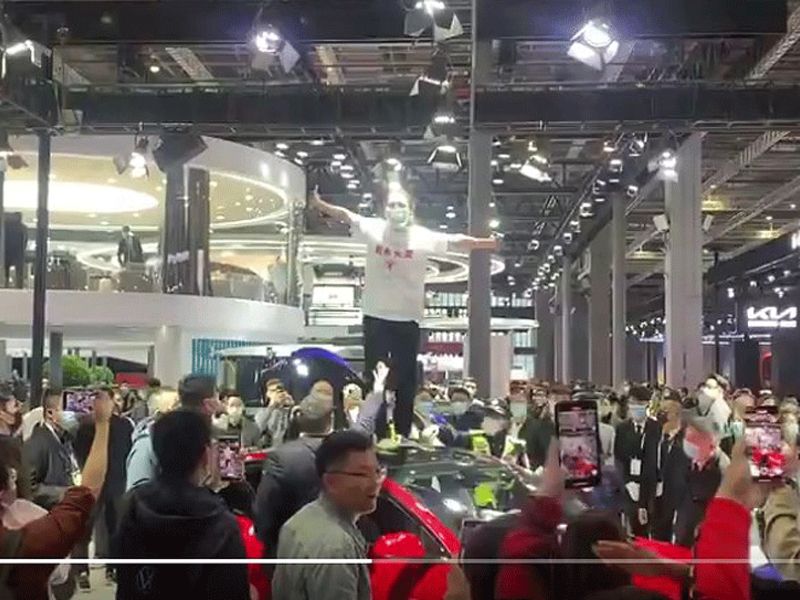
Tesla has released the data logs of a car that crashed in China to the woman who garnered global headlines after she staged a protest at this week’s Shanghai auto show claiming the vehicle’s brakes had failed.
The Model 3 car, which was being driven by Zhang Yazhou’s father at the time, was traveling at 118.5 kph (74 mph) just before impact and slowed to around 48.5 kph (30 mph) after the brakes were applied, according to a local media report.
The data also showed that the driver braked more than 40 times in the half-hour before the crash, and at multiple points the vehicle was traveling at more than 100 kph (62 mph).
Tesla and Zhang have been arguing for several months over whether the car was speeding and if the braking system failed, the report said. Tesla has said its stance was based on vehicle data, which Zhang alleges was tampered with.
In China, the sort of road on which Zhang’s father was traveling generally has a speed limit of 80 kph (50 mph).
“You’ve got to look at the data and the data in this case is available because the car can actually monitor the performance of the driver,” said Bill Russo, the founder and CEO of advisory company Automobility in Shanghai.
The release of the car’s data logs — provided after the market regulator of Zhengzhou, Henan, where the crash occurred, ordered Tesla’s branch there to unconditionally provide the woman with complete driving data for the 30 minutes before the crash — caps a big week for the U.S. automaker.
The drama started on Monday on day one of the Shanghai auto show, when Zhang climbed on one of Tesla’s display vehicles. Her protest was captured by scores of onlookers who then uploaded the footage to social media, helping it go viral.
Tesla initially played down the incident, saying Zhang was “widely known” for protesting, but quickly struck a more conciliatory tone after the critics piled in.
China’s state-run Xinhua news agency published an article on Tuesday that said the quality of Tesla’s electric vehicles must meet market expectations in order to win consumer trust. A few hours later, the Communist Party itself posted a commentary on its WeChat account saying Tesla should respect Chinese consumers and comply with local laws and regulations.
Tesla then issued a wide-ranging apology and subsequently released the data Zhang had been asking for after the Zhengzhou regulator’s directive.
The unwelcome publicity comes at a time when consumer sentiment toward Tesla appears to be souring. Although it is still the No. 1 selling electric automaker in the country, it has come under fire for its perceived arrogance toward car owners.
Many have taken to social media to complain about its lack of customer service and seeming disinterest in addressing problems. Others are angry that they have purchased a Tesla only to discover the company has steeply discounted the same model weeks later.
But any damage may be fleeting.
“I’ve seen this play before — successful foreign carmaker gets their turn in the barrel. Pragmatic Chinese consumers don’t seem to be swayed in the long run,” Russo said. “Tesla may emerge from this even stronger as a result of all the attention.”

